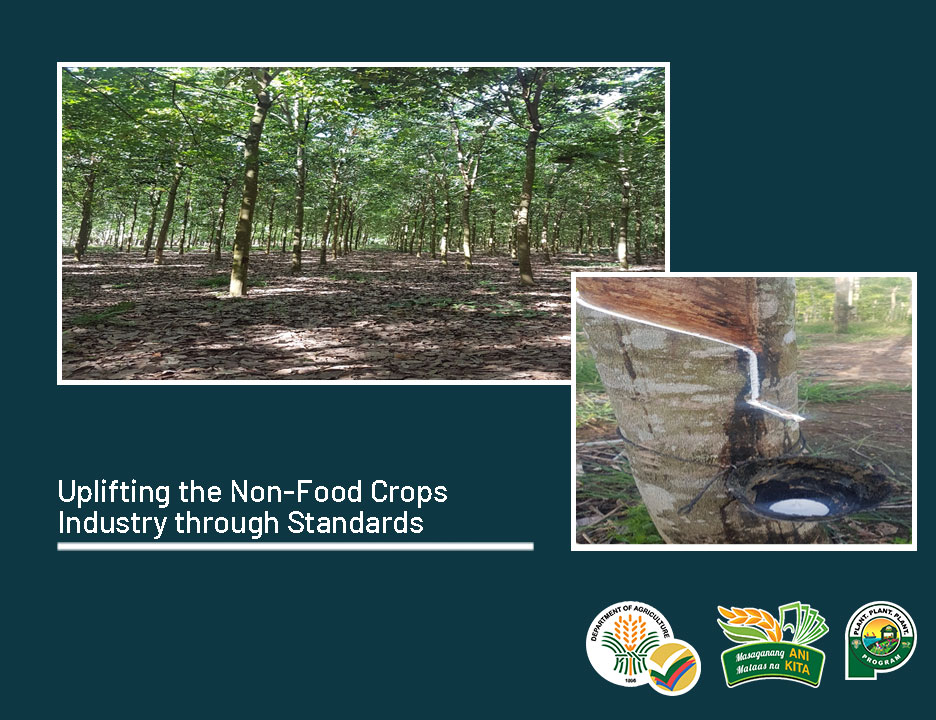
December 17, 2020. Non-food crops composed of various commonly used products including fiber, oil, ornamental, and industrial goods may constitute various risks not only in trade but also when utilized. The safety and quality of these products are often considered less significant in comparison to food crops. However, non-food crops contribute to the agricultural economy of the Philippines (e.g. abaca fiber, rubber). According to the Philippine Statistics Authority (PSA), the production of abaca fiber alone in the 2nd Quarter of 2020 is 18.28 metric tons. On the other hand, production of rubber is reported at 116.94 metric tons. These two products are the champion non-food commodities of the country. The quality and safety of these non-food products can be ensured by establishing the recommended specification and practices for it to be competitive in the local and international market.

As mandated by Republic Act 8435 or the Agriculture and Fishery Modernization Act of 1997, the Bureau of Agriculture and Fisheries Standards is tasked not only to formulate Philippine National Standards for food crops but also to establish the quality and safety parameters of non-food products that will be subsequently used to assist trade.
 The Philippine National Standards (PNS) for Non-food crops aim to specify the requirements and institute a system of classifying commercial grades of non-food commodities. Also, part of the Bureau’s work is the development of process standards which include practices that will ensure good quality products while preserving the environment and protecting worker’s health and welfare. One of the relevant codes of practice for non-food crops is the Good Agricultural Practices or GAP. This code aims to assist farmers in producing quality and globally competitive non-food products. It also includes provisions that will promote sustainable agriculture and proper use of natural resources, from primary to semi processing stage.
The Philippine National Standards (PNS) for Non-food crops aim to specify the requirements and institute a system of classifying commercial grades of non-food commodities. Also, part of the Bureau’s work is the development of process standards which include practices that will ensure good quality products while preserving the environment and protecting worker’s health and welfare. One of the relevant codes of practice for non-food crops is the Good Agricultural Practices or GAP. This code aims to assist farmers in producing quality and globally competitive non-food products. It also includes provisions that will promote sustainable agriculture and proper use of natural resources, from primary to semi processing stage.
Currently, the Bureau has developed 17 PNS related to Non-food crops since 2003. There are 7 ornamental related standards, three fiber related standards, four coconut for industrial use related standards, a natural rubber standard, a cassava for industrial use standard and a general standard for non-food (Figure 1). Among these standards, there are 13 standards for product specification and four codes of practice standards wherein three are for Good Agricultural Practices (Figure 2). These standards aspire to be used in improving the quality of the non-food products that will eventually contribute to boost the livelihood of the farmers and stakeholders involved in the industry.


The Bureau is continually strengthening its efforts in standard formulation through the use of scientific evidence and validated practices, to aid the private sector in building a robust agricultural non-food industry. As the non-food sector in the Philippines continues to grow, the standards for non-food will continuously contribute in uplifting its name in the agriculture industry in terms of safety, quality, trade, and sustainability.
